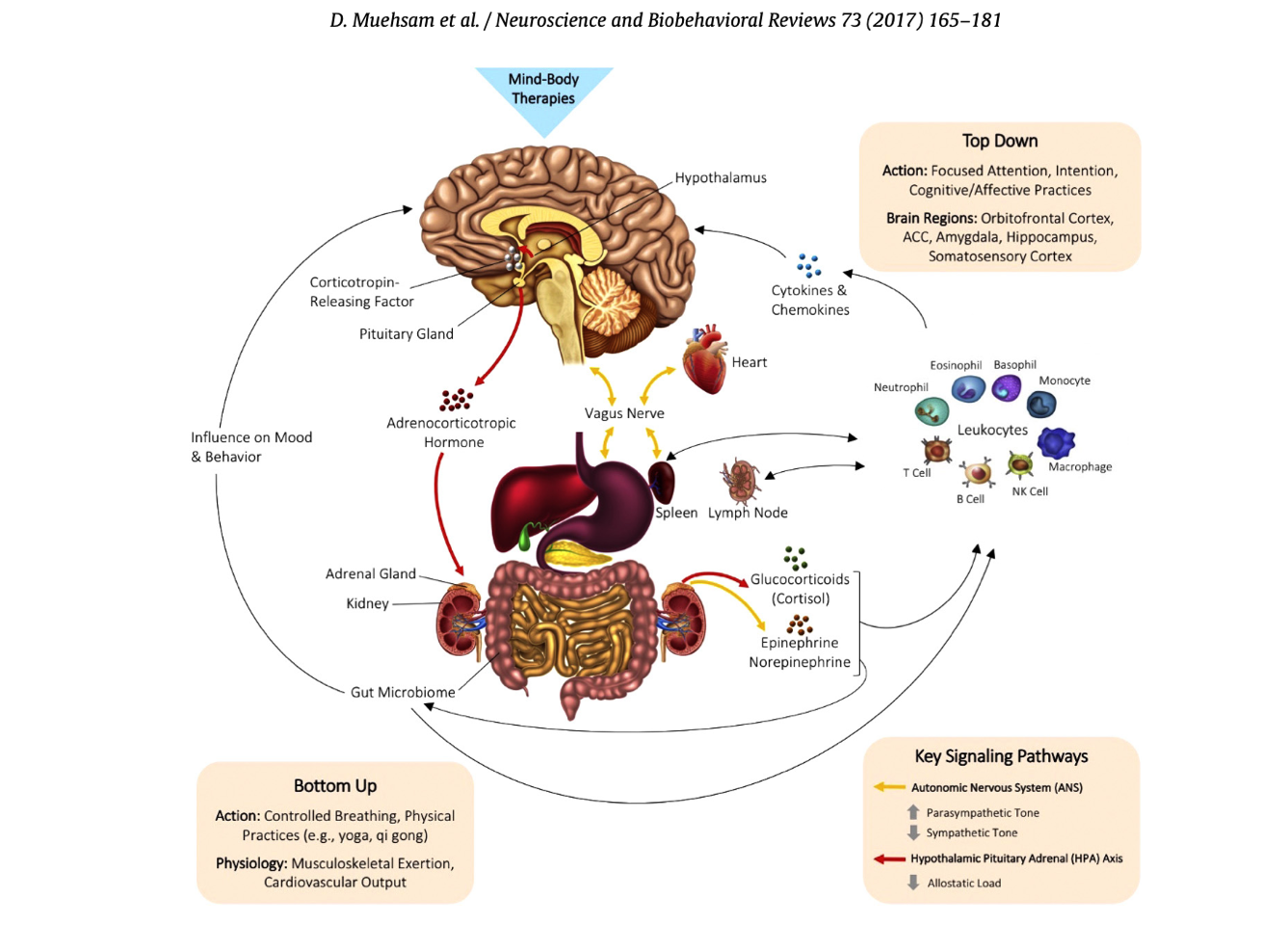Mind-Body Therapies for Trauma Healing
Prepared by: Allison Fischman, MPH Candidate
While trauma and mental health impacts, like post-traumatic stress disorder (PTSD), were historically viewed as purely psychological, research over the last decade or so has shown that traumatic experiences have profound impacts not just on mental health, but on physical health, as well. Toxic stress in childhood, or the experience of prolonged trauma, adversity, abuse, or mistreatment, contributes to high allostatic loads. Allostatic load is cumulative “wear and tear” on the body’s neurological and endocrine (hormone) systems that disrupts normal functioning. Over time, chronic stressors interfere with the body’s ability to regulate its systems, including stress, immune, and other responses.
With his landmark 2015 book The Body Keeps the Score, Dr. Bessel van der Kolk changed the landscape of trauma healing. He asserted that the brain and body are connected, and when trauma occurs, not only do physical symptoms result, but the connection between mind and body is disrupted. Trauma interferes with one’s ability to be in the present. However, neuroplasticity, or the ability of the brain to “re-wire” and change its activity in response to stimuli, allows for neural pathways formed by traumatic experiences to be overridden. Trauma healing methods can retrain the brain to form new connections to heal trauma.
Despite the widespread popularity of Dr. van der Kolk’s work, several disconnects remain. Western medicine has yet to embrace the sort of alternative therapeutic modalities that The Body Keeps the Score and other similar work maintain are crucial to trauma healing. This may be due, in part, to a failure to recognize that alternative healing methods are not new and unproven. Mind-body therapies have been used in traditional medicine and practices in China, India, Tibet, and other countries and cultures for thousands of years. Research on trauma is just starting to test the effects of these traditional healing practices on physiological systems. In this overview, I will briefly explore how trauma interacts with body and mind, then outline several promising modalities for mind-body trauma healing identified through current academic research on trauma and chronic stress.

